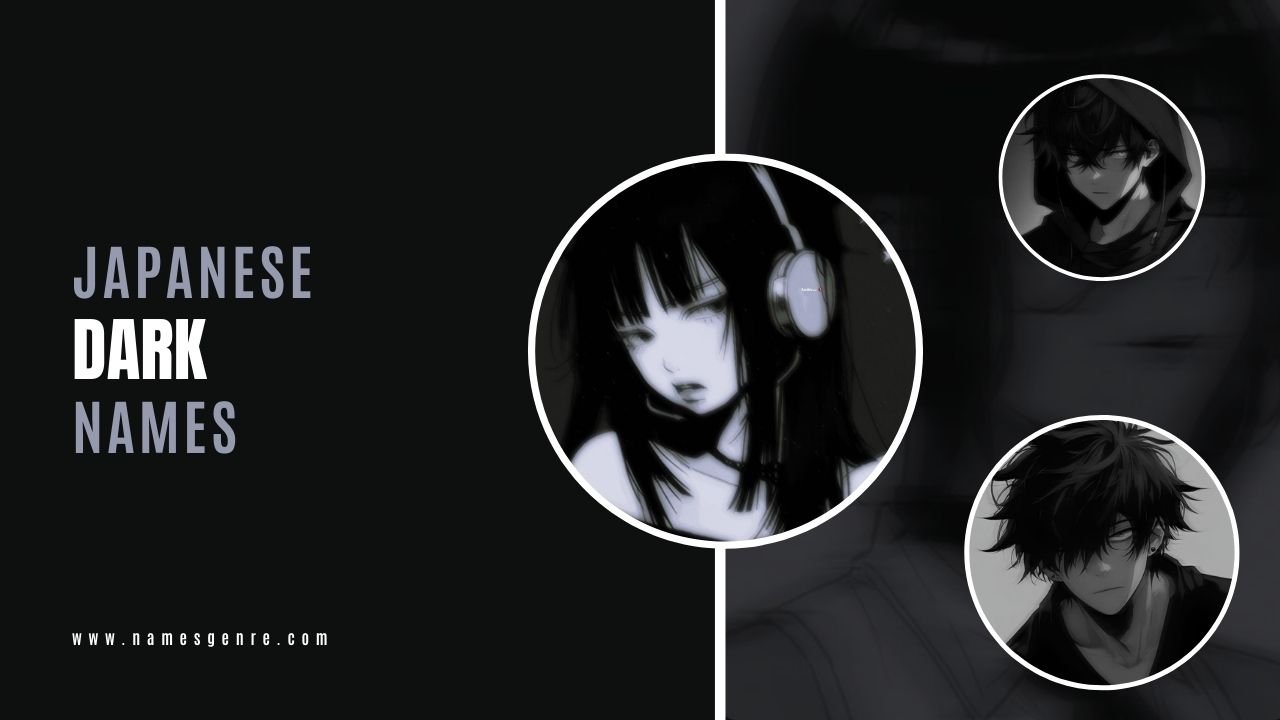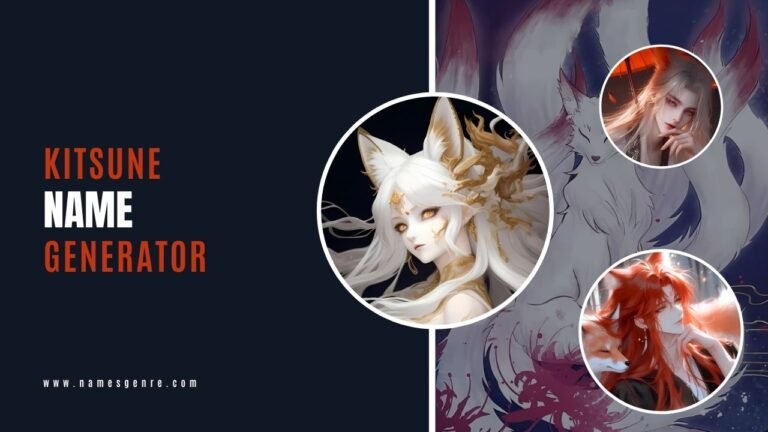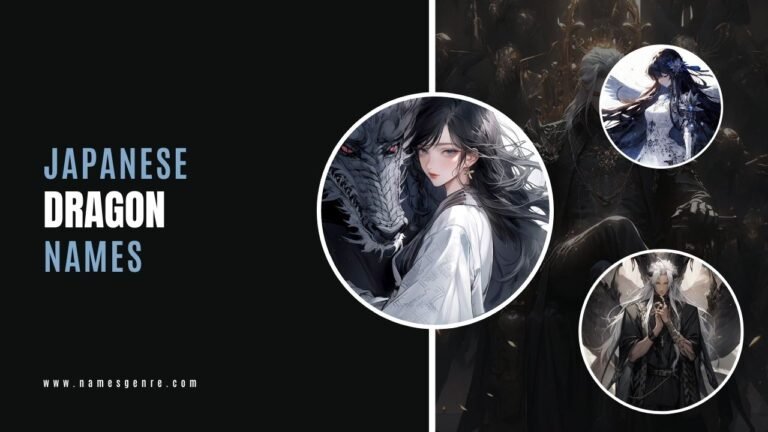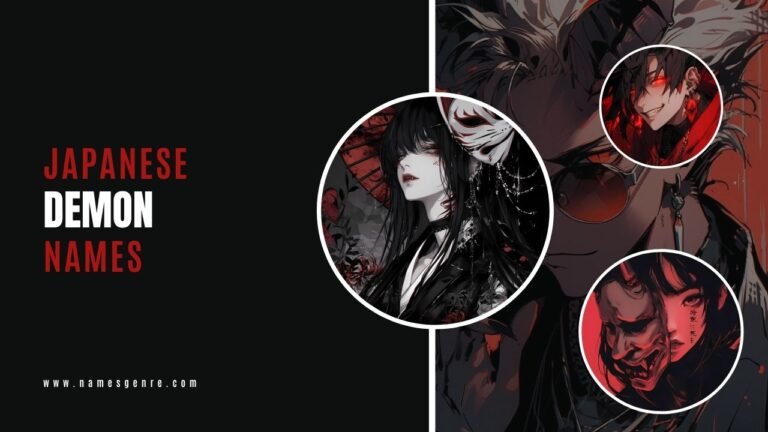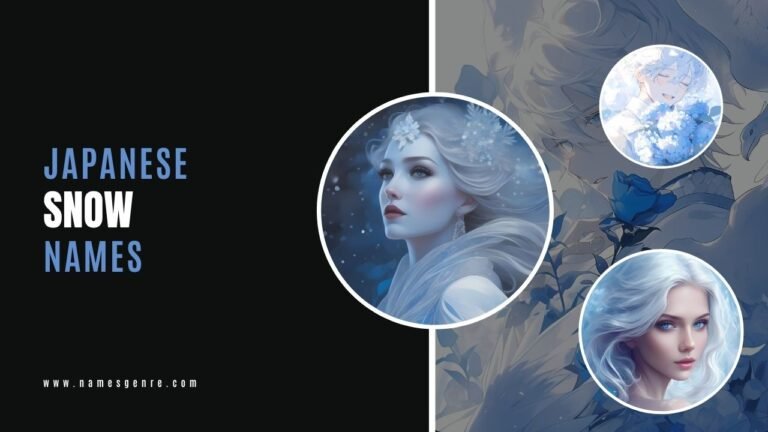Are you also the one looking for the best Japanese names that mean dark? Here, you are at the right place!
We know how tricky it can be to search for a beautiful name for your little one. Most parents have even turned to different cultures to pick the right one. If you are also one of those intrigued by the depth and mystique of the dark names, Japan has them in abundance.
In this post, we have compiled a list of names featuring three categories: male, female, and unisex. This way, everyone can find names that align with their gender preferences.
Now without any further delay, let’s get started.
Japanese Names That Mean Dark for Boys
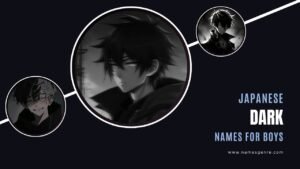
Japanese culture considers darkness as a symbol of profound symbolism. For them, it is not just the absence of light but embodies a complex spectrum of serene tranquillity. The Japanese names that mean dark for boys are intertwined with mystery, beauty, and introspection.
Intriguing the shady figures’ enigmatic allure, Japanese culture sees darkness as something that permeates through different aspects of art and life. Let’s explore some beautiful Japanese names that mean dark for boys here. Each name has its own cultural significance, origin and why you should opt for them. Let us know which one you’ve picked for your little boy!
Kuro (黒)
- Kanji: 黒 (black)
- Meaning: “Black”
- Pronunciation: Koo-roh
Kurou (黒男)
- Kanji: 黒 (black) + 男 (man)
- Meaning: “Black man”
- Pronunciation: Koo-roh
Shinobu (忍)
- Kanji: 忍 (endurance, stealth)
- Meaning: “Stealth” or “endurance”
- Pronunciation: Shee-noh-boo
Raiki (雷鬼)
- Kanji: 雷 (thunder) + 鬼 (demon)
- Meaning: “Thunder demon”
- Pronunciation: Rye-kee
Ginjiro (銀次郎)
- Kanji: 銀 (silver) + 次郎 (second son)
- Meaning: “Silver second son”
- Pronunciation: Gin-jee-roh
Hikaru (光)
- Kanji: 光 (light)
- Meaning: “Light”
- Pronunciation: Hee-kah-roo
Anzai (暗斎)
- Kanji: 暗 (dark) + 斎 (purification)
- Meaning: “Dark purification”
- Pronunciation: Ahn-zai
Kageyama (影山)
- Kanji: 影 (shadow) + 山 (mountain)
- Meaning: “Shadow mountain”
- Pronunciation: Kah-geh-yah-mah
Ryoji (良二)
- Kanji: 良 (good) + 二 (two)
- Meaning: “Good two”
- Pronunciation: Ryoh-jee
Shinya (真也)
- Kanji: 真 (true) + 也 (also)
- Meaning: “True night”
- Pronunciation: Shin-yah
Ikuto (育人)
- Kanji: 育 (raise) + 人 (person)
- Meaning: “Person of growth,”
- Pronunciation: Ee-koo-toh
Yami (闇)
- Kanji: 闇 (darkness)
- Meaning: “Darkness”
- Pronunciation: Yah-mee
Raiden (雷電)
- Kanji: 雷 (thunder) + 電 (lightning)
- Meaning: “Thunder and lightning”
- Pronunciation: Rye-den
Kurohiko (黒彦)
- Kanji: 黒 (black) + 彦 (boy)
- Meaning: “Black boy”
- Pronunciation: Koo-roh-hee-koh
Touya (透夜)
- Kanji: 透 (penetrate) + 夜 (night)
- Meaning: “Penetrating night”
- Pronunciation: Toe-yah
Mitsuki (光希)
- Kanji: 光 (light) + 希 (hope)
- Meaning: Light hope
- Pronunciation: Mee-tsu-kee
Seiji (誠治)
- Kanji: 誠 (sincerity) + 治 (govern)
- Meaning: “Sincerity in darkness”
- Pronunciation: Say-gee
Gurei (グレイ)
- Kanji: 灰 (gray)
- Meaning: “Gray,” represents a mixture of dark and light
- Pronunciation: Goo-ray
Kurata (倉田)
- Kanji: 倉 (warehouse) + 田 (field)
- Meaning: Field of darkness
- Pronunciation: Koo-rah-tah
Nozomi (望)
- Kanji: 望 (hope)
- Meaning: Hope
- Pronunciation: Noh-zoh-mee
Takuto (拓斗)
- Kanji: 拓 (expand) + 斗 (Big Dipper, a symbol of the night sky)
- Meaning: “Expanding through darkness”
- Pronunciation: Tah-koo-toh
Masato (雅人)
- Kanji: 雅 (elegant) + 人 (person)
- Meaning: Elegant person
- Pronunciation: Mah-sah-toh
Satoru (悟)
- Kanji: 悟 (awakening)
- Meaning: Awakening
- Pronunciation: Sah-toh-roo
Yoshinori (義憲)
- Kanji: 義 (righteousness) + 憲 (law)
- Meaning: Righteous law
- Pronunciation: Yoh-shee-noh-ree
Shigeki (滋明)
- Kanji: 滋 (nourish) + 明 (bright)
- Meaning: Bright nourishment
- Pronunciation: Shee-geh-kee
Ryohei (良平)
- Kanji: 良 (good) + 平 (peace)
- Meaning: “Good peace”
- Pronunciation: Ryoh-hay
Tetsuya (哲也)
- Kanji: 哲 (wisdom) + 也 (also)
- Meaning: “Wise night”
- Pronunciation: Teh-tsu-yah
Atsuro (篤郎)
- Kanji: 篤 (sincere) + 郎 (son)
- Meaning: “Sincere son”
- Pronunciation: Ah-tsu-roh
Kensuke (健介)
- Kanji: 健 (healthy) + 介 (mediate)
- Meaning: “Healthy mediator”
- Pronunciation: Ken-soo-keh
Tadashi (忠志)
- Kanji: 忠 (loyal) + 志 (will)
- Meaning: “Loyal will”
- Pronunciation: Tah-dah-shee
Jiro (次郎)
- Kanji: 次 (next) + 郎 (son)
- Meaning: “Second son”
- Pronunciation: Jee-roh
Takanori (高徳)
- Kanji: 高 (high) + 徳 (virtue)
- Meaning: “High virtue”
- Pronunciation: Tah-kah-noh-ree
Keiji (慶司)
- Kanji: 慶 (joy) + 司 (administrator)
- Meaning: “Joyful administrator”
- Pronunciation: Kay-jee
Fuyuto (冬人)
- Kanji: 冬 (winter) + 人 (person)
- Meaning: “Winter person”
- Pronunciation: Foo-yoo-toh
Sakuto (朔人)
- Kanji: 朔 (new moon) + 人 (person)
- Meaning: “New moon person”
- Pronunciation: Sah-koo-toh
Japanese Names That Mean Dark for Girls

There are myriads of Japanese names that mean dark for girls. They often express a sense of elegance and true beauty, glorifying the characteristics of your little girl. While some of these names signify hidden beauty, others symbolise princesses of darkness. Each name amongst our picks here showcases regal quality.
They have emotional and aesthetic depth, resonating with your daughter’s ability to conquer the darkness in her life and shine with her natural innocence. Some of these names blend Western and Japanese cultures, representing multifaceted significance. While figuring out the correct one for your little girl could be tricky, here we are with some of the best names and their meanings.
Kuro (黒)
- Kanji: 黒 (black)
- Meaning: “Black”
- Pronunciation: Koo-roh
Kurumi (胡桃)
- Kanji: 胡 (walnut) + 桃 (peach)
- Meaning: “Dark walnut”
- Pronunciation: Koo-roo-mee
Yami (闇)
- Kanji: 闇 (darkness)
- Meaning: “Darkness”
- Pronunciation: Yah-mee
Anju (暗珠)
- Kanji: 暗 (dark) + 珠 (pearl)
- Meaning: “Dark pearl”
- Pronunciation: Ahn-joo
Mikage (御影)
- Kanji: 御 (honor) + 影 (shadow)
- Meaning: “Honorable shadow”
- Pronunciation: Mee-kah-geh
Shizuka (静香)
- Kanji: 静 (quiet) + 香 (fragrance)
- Meaning: “Quiet fragrance”
- Pronunciation: Shee-zoo-kah
Kage (影)
- Kanji: 影 (shadow)
- Meaning: “Shadow”
- Pronunciation: Kah-geh
Yukiko (雪子)
- Kanji: 雪 (snow) + 子 (child)
- Meaning: “Child of snow”
- Pronunciation: Yoo-kee-koh
Nozomi (望)
- Kanji: 望 (hope)
- Meaning: “Hope”
- Pronunciation: Noh-zoh-mee
Akemi (明美)
- Kanji: 明 (bright) + 美 (beauty)
- Meaning: “Bright beauty”
- Pronunciation: Ah-keh-mee
Kuroha (黒葉)
- Kanji: 黒 (black) + 葉 (leaf)
- Meaning: “Black leaf”
- Pronunciation: Koo-roh-hah
Rei (麗)
- Kanji: 麗 (lovely)
- Meaning: “Lovely”
- Pronunciation: Ray
Mizuki (瑞希)
- Kanji: 瑞 (auspicious) + 希 (hope)
- Meaning: “Auspicious hope”
- Pronunciation: Mee-zoo-kee
Akira (明)
- Kanji: 明 (bright)
- Meaning: “Bright”
- Pronunciation: Ah-kee-rah
Sui (翠)
- Kanji: 翠 (emerald)
- Meaning: “Emerald”
- Pronunciation: Soo-ee
Ruri (瑠璃)
- Kanji: 瑠璃 (lapis lazuli)
- Meaning: “Lapis lazuli”
- Pronunciation: Roo-ree
Tsubaki (椿)
- Kanji: 椿 (camellia)
- Meaning: “Camellia flower”
- Pronunciation: Tsoo-bah-kee
Hikari (光)
- Kanji: 光 (light)
- Meaning: “Light”
- Pronunciation: Hee-kah-ree
Yume (夢)
- Kanji: 夢 (dream)
- Meaning: “Dream”
- Pronunciation: Yoo-meh
Aoi (葵)
- Kanji: 葵 (hollyhock)
- Meaning: “Hollyhock flower”
- Pronunciation: Ah-oh-ee
Akemi (明美)
- Kanji: 明 (bright) + 美 (beauty)
- Meaning: “Bright beauty”
- Pronunciation: Ah-keh-mee
Riko (莉子)
- Kanji: 莉 (jasmine) + 子 (child)
- Meaning: “Jasmine child”
- Pronunciation: Ree-koh
Kuroka (黒香)
- Kanji: 黒 (black) + 香 (fragrance)
- Meaning: “Black fragrance”
- Pronunciation: Koo-roh-kah
Yoshiko (佳子)
- Kanji: 佳 (good, beautiful) + 子 (child)
- Meaning: “Beautiful child”
- Pronunciation: Yoh-shee-koh
Rika (理香)
- Kanji: 理 (reason) + 香 (fragrance)
- Meaning: “Fragrant reason”
- Pronunciation: Ree-kah
Mio (美緒)
- Kanji: 美 (beauty) + 緒 (thread)
- Meaning: “Beautiful thread”
- Pronunciation: Mee-oh
Yuzuki (優月)
- Kanji: 優 (gentle) + 月 (moon)
- Meaning: “Gentle moon”
- Pronunciation: Yoo-zoo-kee
Saki (咲)
- Kanji: 咲 (bloom)
- Meaning: “Bloom”
- Pronunciation: Sah-kee
Mitsuki (光希)\
- Kanji: 光 (light) + 希 (hope)
- Meaning: “Light hope”
- Pronunciation: Mee-tsu-kee
Shizune (静音)
- Kanji: 静 (quiet) + 音 (sound)
- Meaning: “Quiet sound”
- Pronunciation: Shee-zoo-neh
Himari (陽葵)
- Kanji: 陽 (sun) + 葵 (hollyhock)
- Meaning: “Sunflower”
- Pronunciation: Hee-mah-ree
Natsuki (夏希)
- Kanji: 夏 (summer) + 希 (hope)
- Meaning: “Summer hope”
- Pronunciation: Naht-soo-kee
Airi (愛莉)
- Kanji: 愛 (love) + 莉 (jasmine)
- Meaning: “Love and jasmine”
- Pronunciation: Ah-ee-ree
Mikoto (美琴)
- Kanji: 美 (beauty) + 琴 (harp)
- Meaning: “Beautiful sound”
- Pronunciation: Mee-koh-toh
Tsubaki (椿)
- Kanji: 椿 (camellia)
- Meaning: “Camellia”
- Pronunciation: Tsoo-bah-kee
Japanese Unisex Names That Mean Dark
Japanese unisex names that mean dark fascinate people as they are perfect picks for both genders. On top of it, Japanese unisex names that mean dark are something that every parent in Japan craves today. Most of you might be craving to select unconventional and attractive names carrying the meaning of darkness.
While some people might find these names unattractive and scary, the current generation is known for doing things against the norms. Japanese unisex names that mean dark represent strength, inner depth, and versatility. Here are some of the best picks from us!
Kuro (黒)
- Kanji: 黒 (black)
- Meaning: “Black”
- Pronunciation: Koo-roh
Yami (闇)
- Kanji: 闇 (darkness)
- Meaning: “Darkness”
- Pronunciation: Yah-mee
Kage (影)
- Kanji: 影 (shadow)
- Meaning: “Shadow”
- Pronunciation: Kah-geh
Shiro (城)
- Kanji: 城 (castle)
- Meaning: “Castle”
- Pronunciation: Shee-roh
Roku (六)
- Kanji: 六 (six)
- Meaning: “Six”
- Pronunciation: Roh-koo
Kuroki (黒木)
- Kanji: 黒 (black) + 木 (tree)
- Meaning: “Black tree”
- Pronunciation: Koo-roh-kee
Hoshi (星)
- Kanji: 星 (star)
- Meaning: “Star”
- Pronunciation: Hoh-shee
Raiku (雷空)
- Kanji: 雷 (thunder) + 空 (sky)
- Meaning: “Thunder sky”
- Pronunciation: Rye-koo
Ryu (竜)
- Kanji: 竜 (dragon)
- Meaning: “Dragon”
- Pronunciation: Roo
Sora (空)
- Kanji: 空 (sky)
- Meaning: “Sky”
- Pronunciation: Soh-rah
Kageyama (影山)
- Kanji: 影 (shadow) + 山 (mountain)
- Meaning: “Shadow mountain”
- Pronunciation: Kah-geh-yah-mah
Yoru (夜)
- Kanji: 夜 (night)
- Meaning: “Night”
- Pronunciation: Yoh-roo
Kuroha (黒葉)
- Kanji: 黒 (black) + 葉 (leaf)
- Meaning: “Black leaf”
- Pronunciation: Koo-roh-hah
Ren (蓮)
- Kanji: 蓮 (lotus)
- Meaning: “Lotus”
- Pronunciation: Ren
Sei (静)
- Kanji: 静 (quiet)
- Meaning: “Quiet”
- Pronunciation: Say
Iori (伊織)
- Kanji: 伊 (this) + 織 (weaving)
- Meaning: “Weaving”
- Pronunciation: Ee-oh-ree
Nozomi (望)
- Kanji: 望 (hope)
- Meaning: “Hope”
- Pronunciation: Noh-zoh-mee
Aki (秋)
- Kanji: 秋 (autumn)
- Meaning: “Autumn”
- Pronunciation: Ah-kee
Yugure (夕暮れ)
- Kanji: 夕 (evening) + 暮れ (dusk)
- Meaning: “Dusk”
- Pronunciation: Yoo-goo-reh
Kai (海)
- Kanji: 海 (sea)
- Meaning: “Sea”
- Pronunciation: Ky
Tsubasa (翼)
- Kanji: 翼 (wing)
- Meaning: “Wing”
- Pronunciation: Tsoo-bah-sah
Riku (陸)
- Kanji: 陸 (land)
- Meaning: “Land”
- Pronunciation: Ree-koo
Mitsu (光)
- Kanji: 光 (light)
- Meaning: “Light”
- Pronunciation: Mee-tsoo
Tetsu (哲)
- Kanji: 哲 (wisdom)
- Meaning: “Wisdom”
- Pronunciation: Teh-tsoo
Haruka (遥)
- Kanji: 遥 (distant)
- Meaning: “Distant”
- Pronunciation: Hah-roo-kah
Jin (仁)
- Kanji: 仁 (benevolence)
- Meaning: “Benevolence”
- Pronunciation: Jin
Izumi (泉)
- Kanji: 泉 (spring)
- Meaning: “Spring”
- Pronunciation: Ee-zoo-mee
Satoru (悟)
- Kanji: 悟 (enlighten)
- Meaning: “Enlightenment”
- Pronunciation: Sah-toh-roo
Asahi (朝日)
- Kanji: 朝 (morning) + 日 (sun)
- Meaning: “Morning sun”
- Pronunciation: Ah-sah-hee
Rin (凛)
- Kanji: 凛 (dignified, cold)
- Meaning: “Dignified”
- Pronunciation: Reen
Mikage (御影)
- Kanji: 御 (honor) + 影 (shadow)
- Meaning: “Honor shadow”
- Pronunciation: Mee-kah-geh
Kiyoshi (清)
- Kanji: 清 (pure)
- Meaning: “Pure”
- Pronunciation: Kee-yoh-shee
Kou (光)
- Kanji: 光 (light)
- Meaning: “Light”
- Pronunciation: Koh
Ryuu (竜)
- Kanji: 竜 (dragon)
- Meaning: “Dragon”
- Pronunciation: Ryu
Fuyu (冬)
- Kanji: 冬 (winter)
- Meaning: “Winter”
- Pronunciation: Foo-yoo
Conclusion
These Japanese names that mean dark promise a fascinating glimpse into Japan’s culture, language, and mythology. These names are beautiful, carrying deep, haunted meanings that isolate them from the rest. Embrace your child’s inner strength and let them lead the allure of dark stars with these beautiful names. Choosing these names defines a story resonating with your personal preference and appreciation of your culture.

